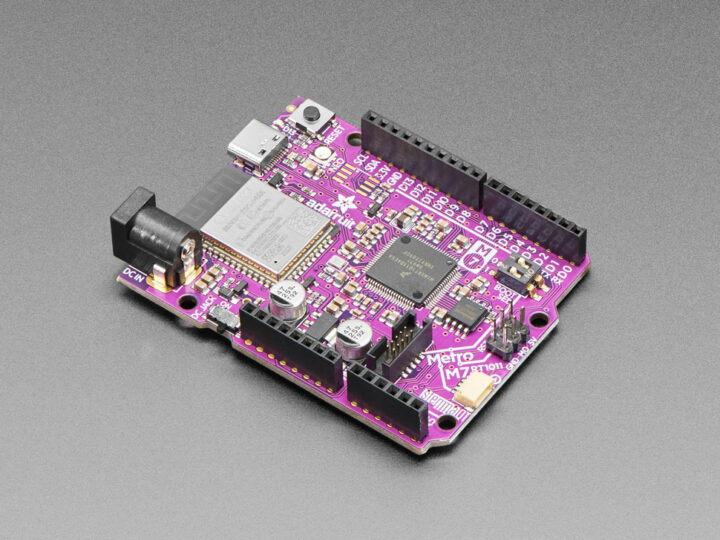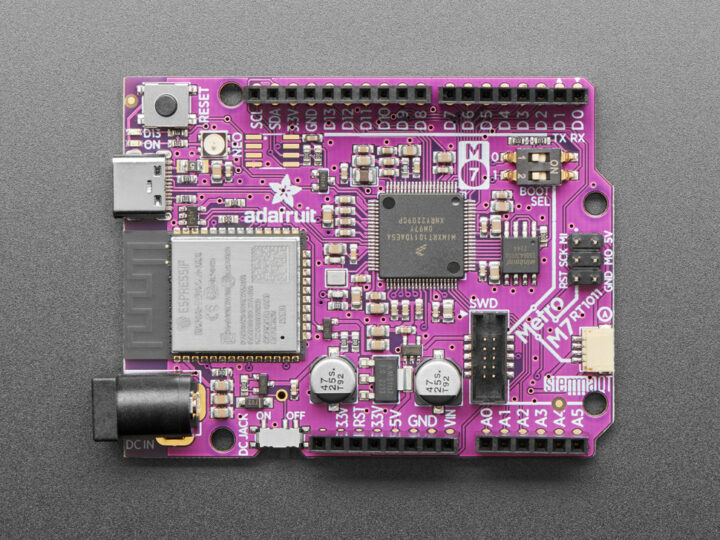Adafruit Metro M7 is a development board based on a 500 MHz NXP i.MX RT1011 Arm Cortex-M7 crossover MCU that follows Arduino UNO form factor and integrates the ESP32-based “AirLift” WiFi module for wireless connectivity.
The board also comes with 4MB QSPI storage, a few LEDs and buttons, a Qwiic connector for additional expansion beyond Arduino Shields, and an SWD connector for debugging. The board takes 6V to 12V DC input via a power barrel jack, but can also be powered through its USB Type-C port.
Adafruit Metro M7 specifications:
- SoC – NXP iMX RT1011 crossover microcontroller with an Arm Cortex-M7 clocked at 500 MHz and 128KB SRAM/TCM
- Storage – 4MB of QSPI XIP Flash
- Wireless – AirLift WiFi co-processor with TLS/SSL support (better known as ESP32-WROOM-32)
- USB – 1x USB Type-C port for power and programming
- Expansion
- Arduino UNO headers for Arduino shields compatibility
- STEMMA QT connector for I2C devices
- Debugging – SWD connector for advanced debugging access.
- Misc – On/Off switch, Reset button, Boot-mode DIP switch, Power and user LEDs, NeoPixel RGB LED
- Power Supply – 6-12V DC barrel jack or USB Type-C port
- Dimensions – 72 x 53.2 x 14.8mm (Arduino UNO form factor)
- Weight – 22.5 grams
Adafruit provides a UF2 bootload for the Metro M7 board in order to facilitate the installation of the CircuitPython firmware. The board should probably be the fastest non-Linux-capable Arduino UNO-compatible board on the market.
The Metro M7 board is sold for $29.99 on the Adafruit store. It is out of stock at the time of writing, but you can always leave your email on Adafruit website to be notified when the board is back in stock.
Via Heise and thanks to Heiko for the tip.

Jean-Luc started CNX Software in 2010 as a part-time endeavor, before quitting his job as a software engineering manager, and starting to write daily news, and reviews full time later in 2011.
Support CNX Software! Donate via cryptocurrencies, become a Patron on Patreon, or purchase goods on Amazon or Aliexpress






